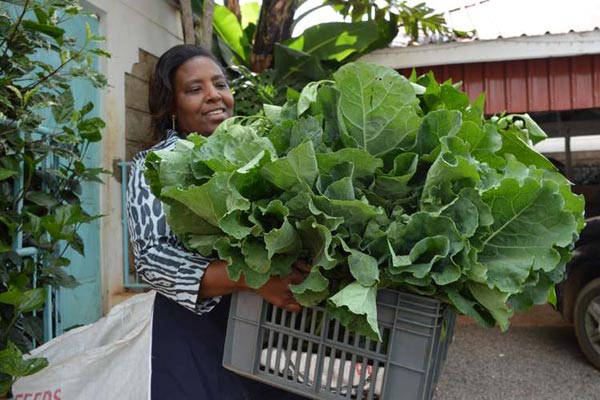BY GRACE MUREITHI
To avoid catastrophic failure, get everything right from planting to maintainance, harvesting and marketing Horticulture is undoubtedly one of the surest ways of turning fortunes in Kenya.
Many self-made millionaires in agribusiness owe their success to horticulture. There are also cases of farmers who have ventured into it with the hope of making a kill, only to reap a life-long disappointment.
Here are a few rules many have played by; and emerged enviably successful.
1. Take the risk of diverging into lesser known enterprises.
It is a natural instinct for humans to stick to routine; possibly the closest explanation as to why sukuma wiki retains a somewhat ‘godly’ status in Kenya. While staying conventional is psychologically a safe place to be; it is not always the best strategy to thrive in agribusiness. If you desire to turn in real good fortunes; you must be open to take real risks; and step out of the traditional practices.
2. Plan wisely
Venturing into new crops serves the entrepreneur with two main advantages; a free market and lesser pest and disease build up. To realise big success though, one will need to plan prudently and make calculated decisions; right from basic decisions as to the variety of vegetables to plant; the key market, down to tricky decisions like when to establish the crop.
It’s important for example; to plan in such a way your crop matures at the pick of its demand. One must also ensure the crop is timed in rhythm to other factors such as weather conditions and social-economic factors. If for instance you are venturing into fresh spices; it is important to be mindful of the fact the Muslim community forms a big chunk of consumers.
As such; your venture should be timed to possibly coincide with their festivities; and never their fasting period.
If growing weather sensitive vegetables like the bulb onions; ensure the venture is timed in such a way the crop matures during the dry season to curb losses.
3. Be optimistic
Farming is one enterprise marred by uncertainties. As a result; many people quit even before they start. But if you are to make it big in agribusiness; you must embrace optimism and walk with it all days. This also means the ability to accept when things are not going well; and seek expert advice in good time.
4. Stagger your crop
One of the common precursors of loss making in agribusiness is glut, which is common with common vegetables such as tomatoes, cabbages or green peas.
A smart way to evade the surplus season is breaking your crop in portions that mature at different periods throughout the year; or better still; avoiding peak seasons all together. Establish the crop six to ten weeks after the start of the main season; when majority of the farmers establish theirs, and back up the drought period with irrigation.
This ensures your crop matures during the lean period; thus attracting better prices. Staggering your crop also helps manage costs related to pests and disease control.
5. Observe strict phytosanitary standards
Ensure strict adherence to field hygiene. Most importantly; by controlling the people who get in your field, as well as the tools they use. This helps curb the spread of diseases from infected crops to your field.










I want to start to farm nduma . I own half an acre shamba river side.. In Kisumu.. I need advice on where I can get nduma seedlings ..advice also on how to farm it..availability of markets around.. And maturity time